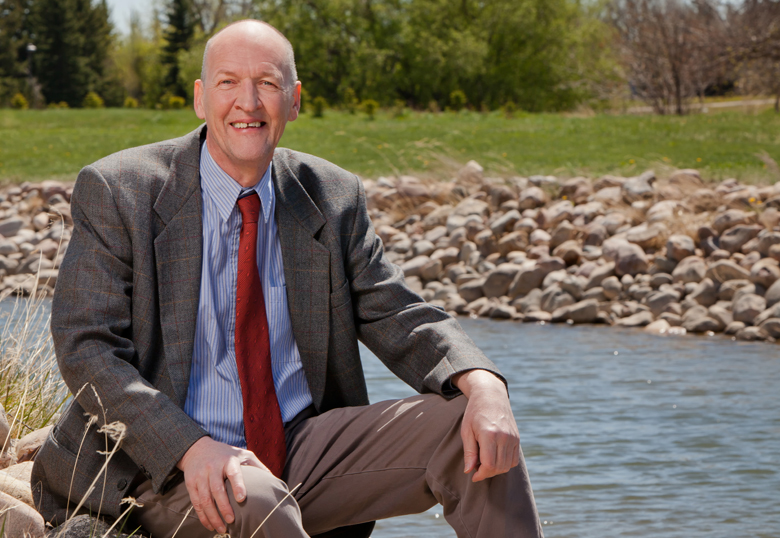A renowned neuroscientist, an accomplished anthropologist and a leading biologist from the University of Lethbridge have been elected to the Fellowship of the Royal Society of Canada (FRSC). Their election acknowledges the remarkable accomplishments of Drs. Louise Barrett, Bruce McNaughton and Joe Rasmussen in advancing knowledge and scholarship.
Barrett, a U of L psychology professor, has been elected by her peers in the Anglophone division of the Academy of Social Sciences. Her innovative approaches to evolutionary anthropology and psychology have contributed to an exciting and fruitful interdisciplinary research program. Her training in ecology and anthropology led her to accept a Canada Research Chair in Evolution, Cognition, and Behaviour as well as the publication of influential books and articles on the social nature of cognition. Her research is firmly grounded in world-class empirical field study of social interaction in primate populations.

“It is an enormous honour to be elected, and a great thrill to be recognized in this way by my adopted country, but I would never have been able to achieve it without the support and hard work of my collaborator, Peter Henzi, our students and our other research collaborators, so much of the credit must also go to them,” says Barrett. “It also meant a great deal to me to be nominated by Linda Fedigan, as she is without doubt Canada’s leading biological anthropologist, and someone whose work I have long admired.”
“I nominated Dr. Louise Barrett for membership in the FRSC because she is a recognized leader in the field of social cognition. She focuses mainly on social dynamics in wild, non-human primates, specifically baboons and vervets, as models of how animals conceptualize and interact adaptively in their social worlds,” says Dr. Linda Fedigan, FRSC, C.M., University of Calgary professor emerita.
Rasmussen, a biology professor, joins the Earth, Ocean and Atmospheric Sciences division of the Academy of Science. He has contributed significantly to the development of tracer approaches to modelling energy flow in food webs, based on fractionation and kinetics of naturally occurring isotopes. These approaches have yielded fresh insights and technical inroads into important ecological problems such as the biomagnification of persistent contaminants and the impacts of heavy metals and mining practices. Rasmussen’s research has important applications to conservation problems, including invasive species, habitat modelling and fragmentation.

“It feels very special to be honoured in this way by colleagues for all these years of doing something that is so much fun. I’m a lucky guy,” says Rasmussen.
“Joe is most deserving of being elected to the Royal Society of Canada. I nominated him because he is a scientist with a broad interdisciplinary scope and strong quantitative skills. He knows the potential that exists in applying theory, tools and modelling approaches from physical sciences to ecology and he’s brave enough to venture into uncharted waters,” says U of L President Mike Mahon.
McNaughton, a neuroscience professor, has been elected to the Life Sciences division of the Academy of Science. His ground-breaking discoveries in systems neuroscience have been the basis for thousands of studies and publications focused on how the world thinks about synaptic plasticity, spatial cognition and long-term memory. His research has dramatically impacted neuroscience theory and his experimental and conceptual work contributed significantly to the work upon which the shared 2014 Nobel Prize in Physiology and Medicine was awarded.

“Bruce is truly a world leader in systems neuroscience and he’s made major advances in several areas and pioneered new technologies and new conceptual approaches. He continues to have a huge impact on neuroscience theory, research and methods. I was pleased to nominate him and his election to the Fellowship of the Royal Society recognizes his many accomplishments,” says Mahon.
Distinguished scholars and artists are elected to the Fellowship of the Royal Society of Canada every year based on their exceptional contributions to Canadian intellectual life. The Society was established through an Act of Parliament in 1883 as Canada’s National Academy for senior scholars, artists and scientists.
